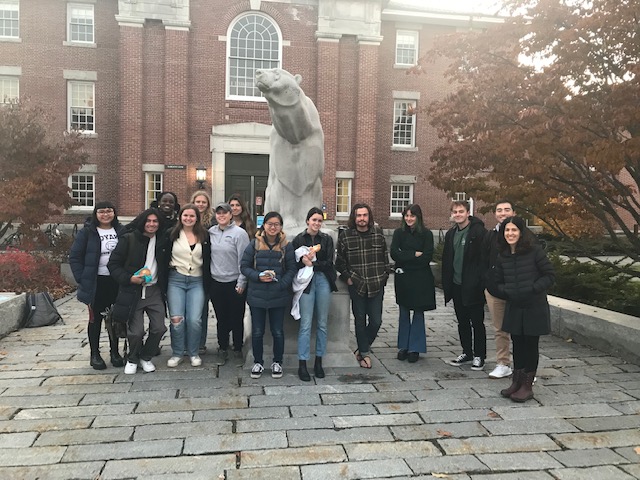I started making these lists because it’s harder than it should be to track down books in translation. That became especially apparent as I tried to find books in translation from Central Africa. The region has a storied literary history, and I had a long, long list of novels to read. Except…I couldn’t find them. There were a host of books that have not yet been translated into English despite their importance to their country’s literary history, works by authors such as Pepetela and Inongo-vi-Makome that I wanted to include but couldn’t.
I am using the definition of Central Africa that consists of Angola, Cameroon, Central African Republic, Chad, Democratic Republic of the Congo, Republic of the Congo, Equatorial Guinea, Gabon, and São Tomé and Principe. I will be listing the language that each book was translated from; the colonial and imperialist histories of these countries has influenced the main languages that authors are writing in and using.
Particularly, there is a dearth of books by Central African women that have been translated into English. This is always especially painful because I can see that the books exist, I can read about books I would love to read myself, but I can’t access them, and so can’t include them. Just as examples, I was frustrated by the inability to read works by Olinda Beja, Nadia Origo, Calixthe Beyala, Marie Claire Matip, and María Nsué Angüe. Many of the introductions and forwards to the books I was able to access referred to this issue as the “empty canon”: while there is an established canon of works by African women authors, they tend to be unreferenced, ignored, and untranslated, creating the illusion of a lack of texts.
But despite all the frustrating online searching, library hold attempts, and bookshelf wanderings, I did in fact manage to put a fantastic list of book recommendations together. Here, I have given you 12 books in translation that hail from Central Africa.
Please note that while I took great care to list content warnings where I could, sometimes things fall through the cracks. Please do additional research on the recommended titles if needed.
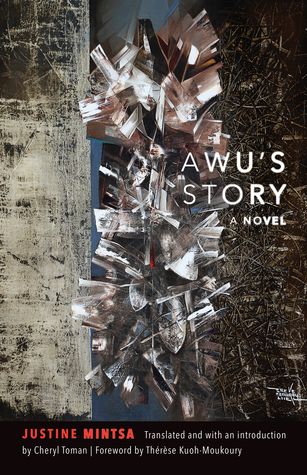
Awu’s Story by Justine Mintsa, Translated from French by Cheryl Toman
In a small village of Gabon, the driven, loving Awu marries Obame Afane, the local schoolteacher, after his first wife is unable to grant him any children. In this short but epic novel, Mintsa digs into the toxic, hypocritical sexism that permeates Awu’s world, populating a complex and fascinating cast of female characters, mothers, and friendships. She refuses the binary of pitting tradition and progress against one another, showing how both, on their own, can bring heartbreak. It is a beautifully written book that feels much longer (in a good way!) than its 111 pages, and the introduction by the translator and forward by Thérèse Kuoh-Moukoury allow readers to dig deep into the fabric of the text.
Content warnings for infertility, sex shaming, torture, sexual assault and coercion, and colorism.
Black Moses by Alan Mabanckou, Translated from French by Helen Stevenson
Mabanckou is one of the most prolific contemporary writers of Francophone African literature. In his novel, young Moses grows up at an orphanage on the edge of Pointe-Noire, as a revolution changes the world outside. In a thread of absurd authoritarian figures and the long life stories that people find themselves sharing with young Moses, he learns of the injustice and sadness packed behind the People’s Republic of Congo’s stories. And he begins to wonder if there’s justice to be found. This tragicomic is compelling and strange, a boy growing up in the 1970s who is trying to find out if he can serve some sort of justice after all.
Content warnings for ethnicity-based prejudice, infanticide, colorism, grooming, rape, necrophilia, animal cruelty, deportation, and use of the R-slur.
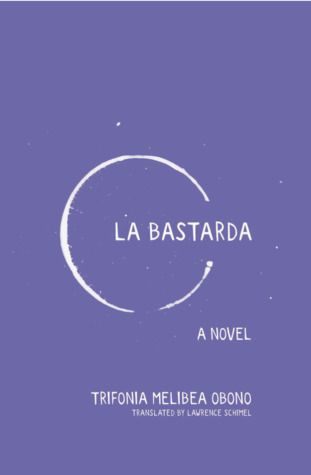
La Bastarda by Trifonia Melibea Obono, Translated from Spanish by Lawrence Schimel
La Bastarda features Okomo, a teen girl struggling under the weight of Fang cultural norms. When drawn into a gang of “indecent” girls, she stumbles on to a world of queerness, nonconformity, and acceptance — a world that includes her “man-woman” uncle Marcelo. This short read is the first novel by an Equatorial Guinean woman to be translated into English — but because this fantastic novel is queer, it is actually banned in Equatorial Guinea. Obono, a bisexual journalist, academic, political scientist, and queer activist, has written another book that I wish I could include here but that is not available in translation: Yo No Quería Ser Madre: Vidas Forzadas de Mujeres Fuera de la Norma, in which she interviews 30 women from her country, the majority of whom are gay or gender-nonconforming, about their experiences.
Content warnings for sexual assault, homophobia, and corrective rape.
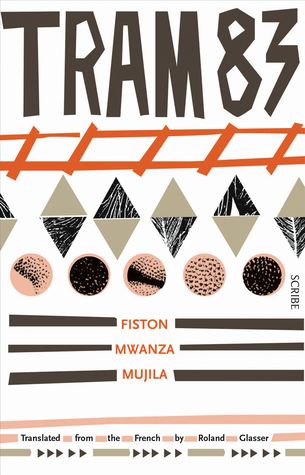
Tram 83 by Fiston Mwanza Mujila, Translated from French by Roland Glasser
A writer named Lucien, fleeing violent censorship, arrives in this African city in secession from its country, ready to find refuge. But the place is not what he expected, and he finds that his childhood friend and new roommate, Requiem, isn’t what he expected either — he’s become a respected gangster in the city, swindling others to survive. Tram 83 is a club that is a cacophony of noise, the center of this city, a lawless place where children are exploited for prostitution, music plays, and fights break out, where the miners come to forget their troubles after long days of trying to find big payloads.
Content warnings for rape, sexual assault of minors, blackmail, false accusations, suicide mentions, violence.
Essential Encounters by Thérèse Kuoh-Moukoury, Translated from French by Cheryl Toman
This 1969 novel is considered a crucial text in the “empty canon,” but the book by Francophone author Kouh-Moukoury of Cameroon was not translated into English until 2002. It features a woman struggling with infertility, and how it tears her marriage apart — their struggles expose all kinds of problems in the changing landscape of Cameroon, from the way women are shamed for being unable to produce children, to issues of polygamy, interracial relationships and ethnic groups, sexism, and other social issues, all through the lens of this one couple.
Content warnings for infertility and prejudice against infertile women.
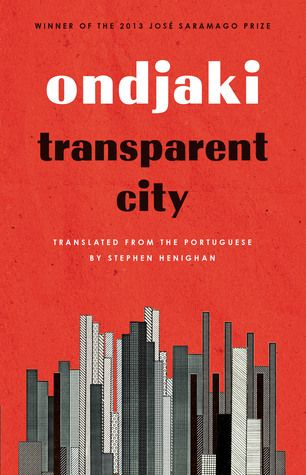
Transparent City by Ondjaki, Translated from Portuguese by Stephen Henighan
An epic cast of characters populates the Luanda apartment block at the center of this novel — from Odonato, who appears to be turning transparent, to the Mailman, always sending letters to government officials to try and get a motorized vehicle, to the Seashell Seller, all living in their world of corruption and money changing hands. It’s a poetic, chaotic web of a book, hilarious and touching, written in a compelling run-on narrative, flowing and sensory. It has a wide scope and won’t be for the faint of heart, but those willing to take the leap will happily swim through the rushing current of this strange, dark comedy, with its tender characters and bizarre tales.
Content warnings for drug addiction, anti-Asian sentiment, animal cruelty, homophobic language, shooting, violence.
Dark Heart of the Night by Léonora Miano, Translated from French by Tamsin Black
Ayané returns to her town after years of studying abroad, in order to visit her dying mother. When a militia forces villagers into a horrific ceremony, she becomes a witness. It is a compelling, dark novel about fear, complicity, and how larger structures normalize violence — about trauma, silence, and what people will do in order to survive. The scars of imperialism pit villagers against one another, and force Ayané into a toxic internalized racism, judging the silence of the villagers through her own privileged lens of having been away and apart from their way of life.
*Readers should skip the introduction by Terese Svoboda if their edition includes it, as the author is firmly opposed to its conclusions and does not consider it at all representative of her text.
Content warnings for stillbirth, racism, imperialism, rape, body horror, suicide, violence, cannibalism.
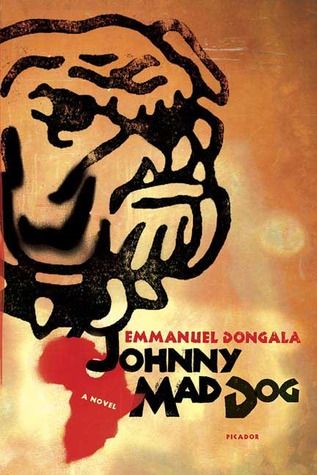
Johnny Mad Dog by Emmanuel Dongala, Translated from French by Maria Louise Ascher
Lao is a young woman who wants to become an engineer, but today she is preoccupied with survival: pushing her mother in a wheelbarrow, carrying their valuables in her pagne, and keeping an eye on her little brother as they flee from an incoming clash of military forces. Meanwhile, Matiti Mabé is a fighter working to help his side win. The book is a dark and painful satire of war, of its absurdity, of the thoughtlessness and blindness of violence and the posturing of power, of the so-often performative actions of journalists, foreign nationals, and organizations like the Red Cross.
Content warnings for torture, shooting, violence, graphically depicted rape, use of the R-slur.
Co-Wives, Co-Widows by Adrienne Yabouza, Translated from French by Rachael McGill
This witty novella is about two widows, Ndongo Passy and Grekpoubou, who find themselves fighting over what’s important to them after their husband dies unexpectedly — even though their dilemma is serious, Yabouza’s dry humor makes the book an entertaining book that U.S. readers will be thrilled to find finally available in English. McGill’s translation won an English PEN translation award in 2019, although the book can still be hard to track down. Yabouza herself is self-taught — she was born in Central African Republic, found asylum in France with her five children during the civil war, and later returned to the country of her birth. She writes fiction in Sango, Yakoma, Lingala, and French.
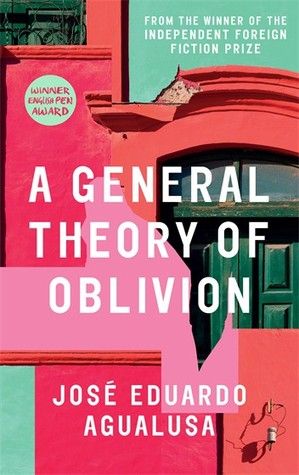
A General Theory of Oblivion by José Eduardo Agualusa, Translated from Portuguese by Daniel Hahn
An agoraphobic woman named Ludo moves to the city of Luanda with her sister and brother-in-law. When they disappear in the midst of fighting, she walls herself into her apartment, forging a careful existence for herself and her dog Phantom. It’s a poetic, compelling novel that dips into a variety of stories to combine for a series of coincidences, a vaguely surreal tale that tells a small history of the city. It’s a beautiful collage, Ludo piecing together stories from her terrace, the reader and narration filling in the rest, all of it eventually coming together. Agualusa also has The Book of Chameleons available in translation.
Content warnings for agoraphobia, trauma and PTSD, rape and shame, violence, death, animal death.
Mr. Fix It by Richard Ali A Mutu, Translated from Lingala by Bienvenu Sene Mongaba
Ebamba (whose name means “mender,” hence the title) is a hell of a frustrating protagonist. The nearly 40-year-old man living in Kinshasa, the capital of the Democratic Republic of the Congo, is trying to scrounge up the money to fulfill the ambitious dowry demanded by his fiancé’s family. But it’s awfully hard to do so when he keeps being manipulated into tough situations, and can’t seem to get a job. The star of the show — other than your embarrassed sympathy for Ebamba as he stumbles from mishap to mishap — is the city of Kinshasa and its music. It is the first novel to be translated into English from Lingala, a Bantu language used by more than 8 million people.
Content warnings for homophobia, suicide, and sexual harassment, coercion, and assault.
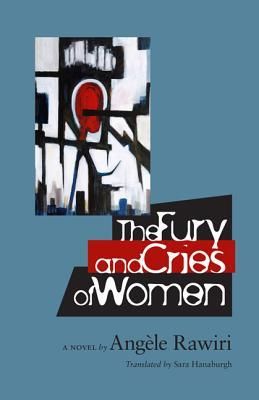
The Fury and Cries of Women by Angèle Rawiri, Translated from French by Sara Hanaburgh
Emilienne’s marriage is falling apart. She’s a career-oriented woman who makes more than her husband; they married despite parental opposition. Now, she’s dealing with multiple miscarriages, a hateful mother-in-law, and an adulterous husband; then her only daughter, Rékia, is unexpectedly murdered. Emilienne is a disobedient woman, and she at once tries to refuse the sexist pressures imposed on her, and desperately wants motherhood and to keep her marriage together at all costs. This book explores queerness, internalized sexism, and the struggle to have children. Rawiri is considered the first novelist of any gender from the country of Gabon, and this is the only one of her novels I could track down in English translation.
Content warnings for fatphobia, infertility and prejudice against infertile women, tribalism, miscarriage depiction, child’s death, AIDS fear, disordered eating, alcoholism, homophobia.
Want more books in translation content? I have lists for you of books in translation from Catalonia, Argentina, France, and Mexico. If you have recommendations or requests for future lists of books in translation, or if you want me to know about a book I might have missed, let me know on Twitter.



